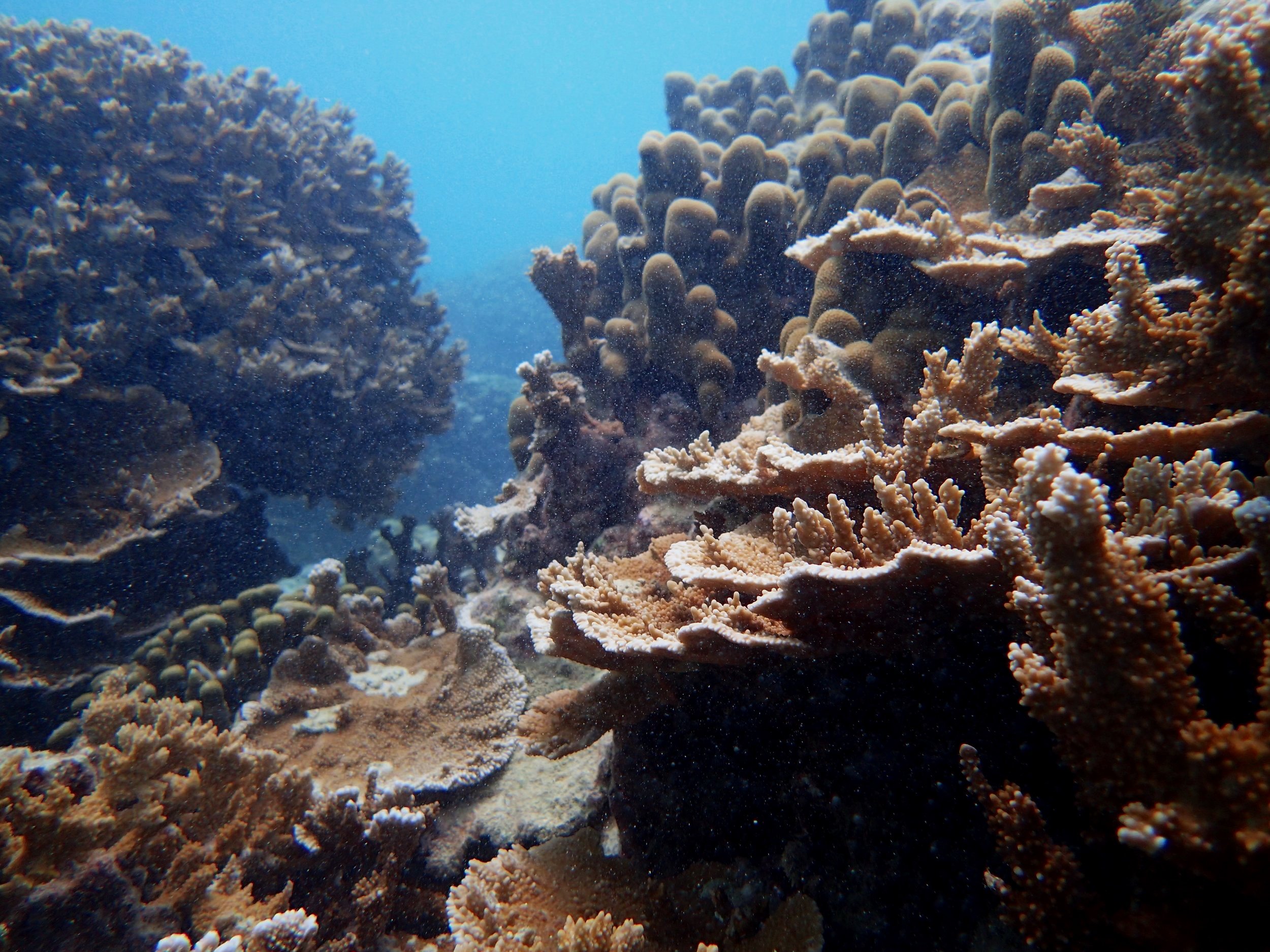
Research and Lesson Development
What we're about
Our scholarly activities include developing authentic investigative, evidence-based marine science lessons and curricula, as well as education research exploring the development of young scientists through participation in immersive science education, particularly students transitioning to undergraduate pathways.
We also have a small research lab that explores sea urchin fertilization rates as a biological assessment of water quality.
-
Education Research
Ambrosino, C.M., Gorospe, K.D., Limeri, L.B., Correa-Garcia, S., & Rivera, M.A.J. (2024). CBE: Life Sciences Education, DOI: 10.1187/cbe.24-02-0038 Student gains in a course-based undergraduate research experience (CURE) focused on marine science highlight the importance of immersive learning and its impact on students in Hawaiʻi entering undergraduate pathways.
Ambrosino, C. M. & Rivera, M. A. J. (2023). CBE: Life Sciences Education, DOI: 10.1187/cbe.22-04-0074 The relevance of science, conceptualization of scientists, and contextualized failure experiences contribute to professional development of young scientists.
Ambrosino, C. M. & Rivera, M. A. J. (2022). International Journal of STEM Education, DOI: 10.1186/s40594-022-00386-4 Science student confidence and cognition evolves over time and with summative experiences after participating in marine science research training.
Rivera, M. A. J., Ambrosino, C. M., Manning, M. M., Leon Soon, S., Rii, Y. M., & Gorospe, K. D. (2022). Oceanography, DOI: 10.5670/oceanog.2022.204 Early-college marine science courses that offer hands-on research opportunities promote interest in marine biology concepts and career pathways.
Rivera, M. A. J., Manning, M. M., & Krupp, D. A. (2013). International Journal of Environmental & Science Education, DOI: 10.12973/ijese.2013.202a A professional development program designed for high school teachers in Hawaiʻi, increases teaching confidence and fosters pedagogical development.
Wiener, C. S., Rivera, M. A. J., Toonen, R. J., Leong, J. C., Kosaki, R. K., Karl, S. A., Keller, K., & Johnson, H. (2011). Journal of Marine Biology, DOI: 10.1155/2011/241610 Partnerships between scientists and resource managers improve ecosystem-based management practices.
Rivera, M. A. J., Lawton, B. E., & Chryssostomidis, C. (2011). Proceedings of the OCEANS 2011 Marine Technology Society/Institute of Electrical and Electronic Engineers Conference, DOI: 10.23919/OCEANS.2011.6106933 Autonomous underwater vehicles are an effective tool in engaging students with marine science through a telepresence education program.
Wiener, C. S. & Rivera, M. A. J. (2010). Current: The Journal of Marine Education, Immersive learning through a marine science outreach program in the Hawaiian Archipelago strengthens relationships between schools and community groups.
Curricula and Modules
Ambrosino, C. M., & Rivera, M. A. J. [In prep]. Marine microplastic classification and physical toxicological impacts on coral behavior.
Rii, Y. M., Bongolan-Aquino, C., Maosi, R., Ambrosino, C. M., Timmers, M., Thomas, W. H., & Rivera, M. A. J. [In prep]. Autonomous Reef Monitoring Structure (ARMS) units as tools to assess coral reef cryptofauna population abundance and ecological distribution.
Thomas, W. H., Meltel, A., Ambrosino, C. M., Rii, Y. M., & Rivera, M. A. J. [In prep]. Environmental cue and parameters that impact reef-building coral larval settlement and spat growth.
Ambrosino, C. M. & Rivera, M. A. J. (2020). Journal of Biological Education, DOI: 10.1080/00219266.2020.1739118 Ethological protocols and immersive learning pedagogy to enhance science literacy among high school students.
Fox, B. K., Gorospe, K. D., Haverkort-Yeh, R. D., & Rivera, M. A. J. (2013). The American Biology Teacher, DOI: 10.1525/abt.2013.75.7.5 Marine invertebrate bioacoustic and social behavior in a laboratory context.
Gorospe, K. D., Fox, B. K., Haverkort-Yeh, R. D., Tamaru, C. S., & Rivera, M. A. J. (2013). Journal of Geoscience Education, DOI: 10.5408/12-390.1 Ocean chemistry cycles and their effects on marine life.
Haverkort-Yeh, R. D., Tamaru, C. S., Gorospe, K. D., & Rivera, M. A. J. (2013). Science Activities: Classroom Projects and Curriculum Ideas, DOI: 10.1080/00368121.2013.846898 The effects of water quality changes on sea urchin fertilization and embryonic development.
Tamaru, C. S., Haverkort-Yeh, R. D., Gorospe, K. D., & Rivera, M. A. J. (2013). Journal of Biological Education, DOI: 10.1080/00219266.2013.837403 Larval fish development and its relevance to aquaculture practices.
-
Are you accepting graduate students?
We receive numerous inquiries each year from students interested in the intersection between marine science and education. If you are considering applying for the Marine Biology Graduate Program, generally speaking you will need to identify a faculty sponsor whose primary research activities lie in the natural sciences. In such situations, assuming mutual interest, graduate students might be co-Advised by Dr. Rivera for scholarly work associated with education research or curriculum development derived from the natural science research project being undertaken for the thesis or dissertation. If you are considering applying for graduates studies in the College of Education with an interest in marine science education research, please contact Dr. Rivera with a CV.